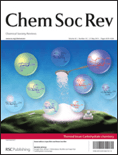
CHEMICAL SOCIETY REVIEWS
Scope & Guideline
Fostering Global Dialogue in Chemistry
Introduction
Aims and Scopes
- Supramolecular Chemistry:
Focuses on the design, synthesis, and application of supramolecular structures, including capsules, gels, and polymers, highlighting their potential in various fields such as drug delivery and nanotechnology. - Catalysis and Reaction Mechanisms:
Covers advances in catalytic processes including metal-catalyzed reactions, photocatalysis, and organocatalysis, with an emphasis on understanding mechanisms and developing new catalytic systems. - Materials Chemistry:
Explores the synthesis, characterization, and application of novel materials, including nanomaterials, metal-organic frameworks (MOFs), and polymers for energy storage, environmental remediation, and biomedicine. - Electrochemistry and Energy Conversion:
Investigates electrochemical processes, including battery technologies, CO2 reduction, and water splitting, focusing on the development of efficient systems for renewable energy generation and storage. - Biomaterials and Nanomedicine:
Examines the intersection of chemistry and biology, focusing on the design of biomaterials for therapeutic applications, drug delivery systems, and the development of biosensors. - Green Chemistry and Sustainability:
Promotes research on sustainable practices in chemistry, including the development of environmentally friendly processes, renewable resources, and waste reduction strategies.
Trending and Emerging
- Advanced Nanomaterials:
There is a growing emphasis on the development and application of advanced nanomaterials, such as 2D materials and nanostructured catalysts, which are crucial for applications in electronics, energy conversion, and sensing. - Sustainable Chemistry:
Increased focus on sustainable practices, including the use of renewable resources, green solvents, and catalysis for chemical processes, aligns with global sustainability goals and environmental concerns. - Electrocatalysis and Energy Storage:
Research in electrocatalysis for CO2 reduction and energy storage technologies, such as batteries and supercapacitors, is gaining traction as society seeks to address energy challenges and climate change. - Bioconjugation and Biocatalysis:
Emerging themes in bioconjugation techniques and the use of biocatalysts for synthetic applications highlight the integration of biological systems with chemical processes, leading to innovative therapeutic strategies. - Smart Materials and Responsive Systems:
Research on smart materials that respond to environmental stimuli, including stimuli-responsive hydrogels and nanocarriers, is trending, reflecting the intersection of materials science with biomedical applications.
Declining or Waning
- Traditional Organic Synthesis:
There has been a noticeable decrease in publications focusing solely on classical organic synthesis methods, as the field shifts towards more innovative and efficient strategies, including catalysis and green chemistry. - Conventional Polymer Science:
Research centered around traditional polymer chemistry, particularly those not integrating advanced materials or sustainability, appears to be waning as more emphasis is placed on novel materials and applications. - Inorganic Chemistry without Functional Applications:
Papers focusing on purely academic aspects of inorganic chemistry, without practical applications or connections to emerging technologies, are becoming less prevalent, reflecting a trend towards applied research.
Similar Journals

ACTA CHIMICA SINICA
Advancing the Frontiers of Chemical KnowledgeACTA CHIMICA SINICA, published by SCIENCE PRESS, is a distinguished peer-reviewed journal in the realm of Chemistry, specifically focusing on general and miscellaneous chemistry fields. Since its inception in 1982, the journal has consistently contributed to the advancement of chemical research in China and beyond, maintaining a reputable standing within the academic community, evidenced by its 2023 Scopus ranking of #197 out of 408 in its category. With a current impact factor placing it in the Q3 quartile, ACTA CHIMICA SINICA aims to disseminate innovative research findings, covering a wide spectrum of topics within the discipline. Although it is not an open-access journal, it offers various access options through institutional subscriptions, ensuring that its high-quality content is available to a broad audience. Researchers, professionals, and students alike will find this journal a vital resource for keeping abreast of developments in the field and for contributing their own findings to an engaged scientific community.
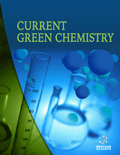
Current Green Chemistry
Catalyzing change through sustainable chemical practices.Current Green Chemistry, published by Bentham Science Publishers, is a pivotal scholarly resource devoted to advancing the field of green chemistry. With ISSN 2213-3461 and E-ISSN 2213-347X, this journal serves as a crucial platform for researchers and professionals to explore innovative and sustainable practices within the chemical sciences. The journal has demonstrated significant recognition, evidenced by its categorization in the third quartile (Q3) across various specializations including Analytical Chemistry and Inorganic Chemistry, and even a fourth quartile (Q4) in Organic Chemistry, according to the latest Scopus metrics. This indicates a growing influence in relevant fields, making it a valuable reference for contemporary environmental initiatives. The journal's accessible nature, although not open access, ensures researchers can still engage with high-quality, peer-reviewed content. Spanning an impressive converged period from 2019 to 2024, Current Green Chemistry is committed to enhancing the visibility of groundbreaking research that aligns with sustainable development objectives, making it an essential resource for anyone interested in the future of chemistry.
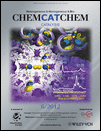
ChemCatChem
Advancing Catalysis and Chemistry for a Brighter Tomorrow.ChemCatChem is a leading international journal published by WILEY-V C H VERLAG GMBH that has been making significant contributions to the fields of catalysis, inorganic and organic chemistry, as well as physical and theoretical chemistry since its inception in 2009. With an established reputation for excellence, this journal holds commendable rankings in various categories, including Q1 in Inorganic Chemistry and Q1 in Organic Chemistry, demonstrating its pivotal role in advancing scientific knowledge and innovation. Notably, it has achieved a high Scopus ranking, securing 10th place out of 79 in Inorganic Chemistry, among others, showcasing its influence and quality. Although open access options are not available, the journal offers cutting-edge research articles, reviews, and insights that are vital for researchers, professionals, and students aiming to stay at the forefront of chemical science. With its address rooted in Weinheim, Germany, and convergence projected to continue until 2024, ChemCatChem remains a dynamic platform for disseminating vital advancements within the chemical community.
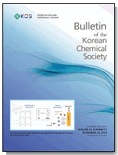
BULLETIN OF THE KOREAN CHEMICAL SOCIETY
Fostering excellence in diverse chemical research.BULLETIN OF THE KOREAN CHEMICAL SOCIETY, published by WILEY-V C H VERLAG GMBH, is a prominent journal in the field of chemistry, with a specific emphasis on miscellaneous chemical research. With an ISSN of 0253-2964 and E-ISSN 1229-5949, this journal serves as a pivotal platform for researchers, professionals, and students who are eager to showcase innovative studies that address both foundational and emerging topics in the discipline. Boasting a commendable Q2 ranking in the 2023 chemistry quartiles, the journal ranks within the top 50th percentile in Scopus, reflecting its commitment to high-quality scientific discourse. The content published within its pages from 1996 to 2024 covers a vast array of subjects, ensuring a multidisciplinary approach to chemical research. The journal’s impact in the academic community is underscored by its accessibility to a global audience, making it an essential resource for those wishing to stay at the forefront of chemical advancements.
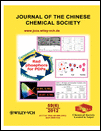
JOURNAL OF THE CHINESE CHEMICAL SOCIETY
Enriching the Global Dialogue in ChemistryJOURNAL OF THE CHINESE CHEMICAL SOCIETY, published by WILEY-V C H VERLAG GMBH, is a vital resource in the field of chemistry, focusing on a broad array of topics pertinent to general chemistry and its advancing sub-disciplines. Established in 1954 and running through 2024, this journal serves as a significant platform for the dissemination of high-quality research, showcasing innovative findings and developments within the chemical sciences. With its Q3 category ranking and positioning at Rank #203 in General Chemistry per Scopus, it reflects the journal's commitment to research excellence and impact. While not an open-access publication, it ensures accessibility to a global audience, making it an essential tool for researchers, professionals, and students alike seeking to stay informed and engaged in the evolving landscape of chemistry.
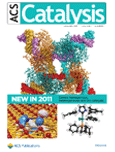
ACS Catalysis
Empowering Research in the Heart of CatalysisACS Catalysis, published by the American Chemical Society, stands as a premier journal in the field of catalysis, offering a vital platform for researchers, professionals, and students focused on advancing the science of catalysis and its applications. With an impressive impact factor placing it in the Q1 category for both Catalysis and Chemistry (miscellaneous), this journal has established itself as a leading source of high-quality research findings, currently ranking #21 out of 408 in General Chemistry and #9 out of 68 in Catalysis according to Scopus. Since its inception in 2011, ACS Catalysis has aimed to publish innovative research that addresses the critical challenges in catalytic processes, advancing our understanding of both fundamental and applied aspects of catalysis. With a commitment to promoting open scientific discourse, it serves a vital role for those interested in the latest methodologies, discoveries, and trends in this essential discipline. Based in Washington, DC, ACS Catalysis continues to uphold the highest standards of scholarship and collaboration within the vibrant community of chemists and engineers worldwide.

CHEMICAL RESEARCH IN CHINESE UNIVERSITIES
Exploring the Frontiers of Chemical ScienceCHEMICAL RESEARCH IN CHINESE UNIVERSITIES is a prominent academic journal dedicated to the dissemination of high-quality research in the field of chemistry and related educational methodologies. Published by HIGHER EDUCATION PRESS, this journal has established itself as a vital resource for researchers and professionals looking to stay at the forefront of chemical sciences. With an impressive impact factor and ranked in the Q2 quartile for both Chemistry and Education categories, it highlights significant advancements while maintaining rigorous peer-review standards. The journal's ISSN is 1005-9040 and its E-ISSN is 2210-3171, ensuring broad accessibility to its global readership. Although it does not offer open access, its contributions are vital to understanding the dynamics of chemistry research and education within and beyond China. With converged publication years from 1999 through to 2024, CHEMICAL RESEARCH IN CHINESE UNIVERSITIES continues to be an essential platform for innovative studies and critical discussions in the expanding realm of chemistry.
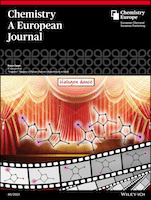
CHEMISTRY-A EUROPEAN JOURNAL
Catalyzing Progress in the Scientific CommunityCHEMISTRY-A EUROPEAN JOURNAL is a premier academic journal published by WILEY-V C H VERLAG GMBH, specializing in the diverse fields of chemistry and catalysis, with a distinguished focus on organic chemistry. Since its inception in 1995, the journal has established itself as an authoritative resource for researchers and professionals, currently classified in Q1 in Chemistry (miscellaneous) and Organic Chemistry, reflecting its high-quality contributions to the scientific community. With an impressive impact factor and robust Scopus rankings—#33 in Organic Chemistry and #26 in Catalysis—this journal serves as a vital platform for disseminating innovative research findings and critical advancements in chemical sciences. Although not an open-access journal, it provides valuable access options for institutions, ensuring wide reach and engagement within the scientific community. As it converges into 2024, CHEMISTRY-A EUROPEAN JOURNAL remains a key resource for anyone dedicated to advancing the frontiers of chemistry research.
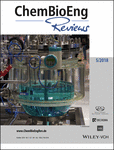
ChemBioEng Reviews
Cultivating Knowledge for Tomorrow's Chemical InnovationsChemBioEng Reviews is a premier academic journal dedicated to advancing the fields of biochemistry, bioengineering, and chemical engineering. Published by WILEY-V C H VERLAG GMBH, this journal serves as an essential platform for researchers and professionals seeking to disseminate groundbreaking insights and innovations. With a remarkable impact factor and a solid reputation, it is ranked in the top quartile (Q1) across multiple disciplines, including Biochemistry, Bioengineering, and Industrial and Manufacturing Engineering. The journal's comprehensive scope covers the synthesis, analysis, and application of bioengineered solutions, making it a vital resource for anyone involved in process chemistry and technology. With an unwavering commitment to high-quality scientific discourse from 2014 to 2024, ChemBioEng Reviews is not only pivotal for the academic community but also contributes to industry advancements in filtration, separation processes, and the intersection of chemical and biological engineering.

JOURNAL OF THE INDIAN CHEMICAL SOCIETY
Illuminating India's Contributions to Global Chemical ResearchJournal of the Indian Chemical Society, published by Elsevier, stands as a cornerstone in the field of chemistry, particularly representing the rich chemical research emanating from India.
With a significant history dating back to its establishment, this journal encompasses diverse disciplines including Drug Discovery, Electrochemistry, Inorganic Chemistry, Organic Chemistry, and Physical and Theoretical Chemistry, reflecting the evolving landscape of chemical sciences.
Despite being positioned in the Q3 category across multiple quarters, the journal demonstrates promising rankings in various chemistries, highlighting its commitment to advancing the knowledge and application of chemical sciences. While currently not available as an open access journal, the Journal of the Indian Chemical Society is dedicated to providing a platform for high-quality research that fosters innovation and collaboration among researchers, professionals, and students worldwide.
With its continuous publication from 1973 to the present, it serves as an essential repository for cutting-edge findings and developments in chemistry, striving to connect academia with industry and practice.